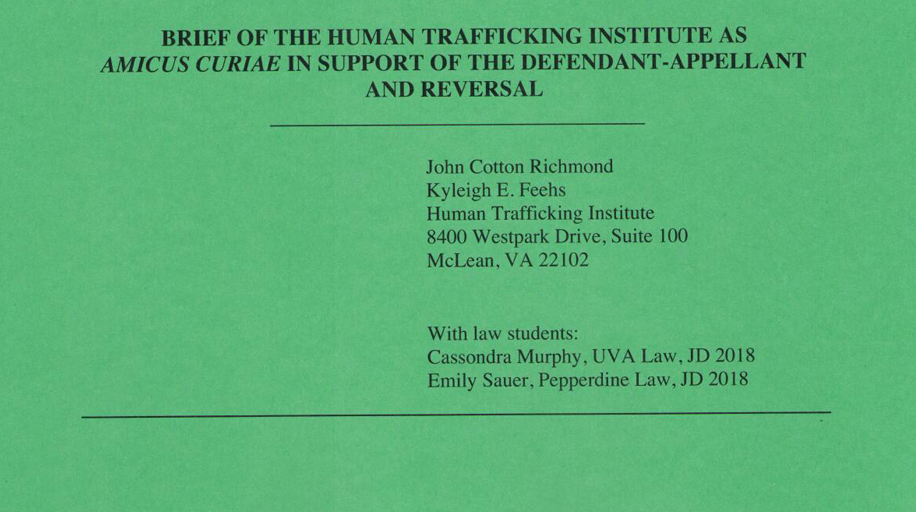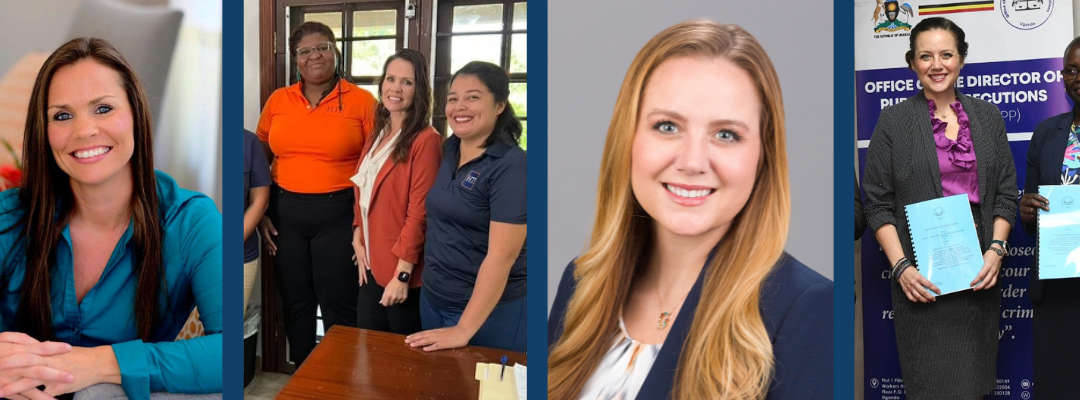MCLEAN, VA—The Human Trafficking Institute recently filed an amicus brief in the U.S. Court of Appeals for the 8th Circuit in support of the defendant, who employed a victim-centered approach to a human trafficking investigation. The case involves six plaintiffs who allege that the defendant, — a St. Paul, Minnesota, police officer — mishandled the investigation against them.
The Institute submits the brief in favor of the defendant and of a reversal of the Lower Court decision, because a victim-centered approach to human trafficking investigations is vital if there is to be holistic justice:
The Court should endorse the victim-centered approach and recognize that the law enforcement officers who first come into contact with human trafficking victims play a critical role in providing victims the help they need to recover. This prioritization of victim needs is not only the morally proper thing to do, it is the legally proper thing to do. Justice is not limited to successfully prosecuting traffickers; rather, it requires that the victims be made whole, and the victim-centered approach seeks to do just that.” -excerpt from the Amicus Brief
A victim-centered approach to human trafficking places equal emphasis on the identification and stabilization of victims and providing immigration relief, as well as the investigation and prosecution of traffickers. It is a proven method to care for and respect victims during the criminal justice process. Many national and international bodies—such as the United Nations, United States Congress, and federal law enforcement agencies—support the victim-centered approach as the appropriate way to handle human trafficking cases.
The Institute argues that the Court should embrace the victim-centered approach and that a rejection of the approach would risk a return to investigation practices that harmed human trafficking victims by mistaking them as criminals or undocumented immigrants.
This brief was co-drafted by Douglass Fellows Cj Murphy from the University of Virginia School of Law and Emily Sauer from Pepperdine University School of Law.




